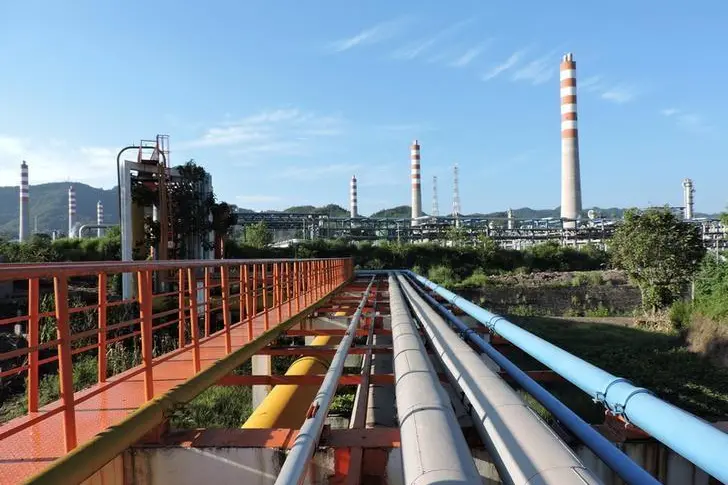PHOTO
MOSCOW/WARSAW- Gas flows from Germany to Poland via the Yamal-Europe pipeline, which usually sends Russian gas west into Europe, declined on Friday, data from German network operator Gascade showed.
The pipeline link between Poland and Germany has been operating in reverse mode since Dec. 21, putting upward pressure on European gas prices.
The pipeline usually accounts for about one-sixth of Russia's annual gas exports to Europe and Turkey.
The reverse flows seen on Friday were slightly above 11.7 million kWh/h, down from 13.1 million kWh/h for the past 24 hours, data from the Mallnow metering point on the German-Polish border showed, and are expected to stay at this level until the early hours of Saturday.
Russia ships gas atop contractual volumes when it sees requests, the state gas firm Gazprom has said, and Germany, its biggest customer, is supplied via a number of routes, including the Nord Stream 1 pipeline under the Baltic Sea.
Poland used a reverse gas flow from Germany "all the time but it used to be virtual," or when Poland was just taking gas from the westbound flows and which on paper it re-imports from Germany, a market source said.
The source added that physical reverse started when Russia cut its deliveries to the west to the long-term contracts only, without additional volumes.
"With no additional volumes Polish buyers cannot use virtual reverse anymore... The demand from Polish buyers for German gas is continuous due to lower prices," the source said.
The benchmark Dutch front-month contract rose by 6% on Friday to 81 euros per megawatt hour (MWh), largely inline with the contract for next day delivery .
Not only volumes atop of the long-term deals but also some of Gazprom's regular contracts are tied to spot prices after Russia adjusted its pricing some time ago on request from its top western buyers - something Russian President Vladimir Putin has said now is backfiring on European consumers.
And if ten years ago the bulk of Russian gas contracts were linked to oil prices with a six to nine month lag, now some 80% of Gazprom's deals are tied to short and longer-term gas hub prices, according to Bank of America.
"Given the path of the gas pricing last year, Gazprom's contracts are now reflecting peak European gas prices in the fourth quarter of 2021 and first quarter of 2022," said Karen Kostanian, head of BofA's analytical department in Russia.
European benchmark gas prices hit a previous record of 155 euros per MWh on Oct. 6, only to climb to a peak of 184.95 euros per MWh on Dec. 21 when the Yamal system reversed flows.
Europe's gas storage levels are below the five-year average, as economics for buyers encourage withdrawals of gas from stocks rather than paying higher prices for Russian supply, analysts say.
(Reporting by Vladimir Soldatkin and Katya Golubkova in Moscow; Additional reporting by Jason Hovet in Prague and Anna Koper in Warsaw; Editing by Christopher Cushing and Louise Heavens) ((vladimir.soldatkin@reuters.com; @vsoldatkin;))





















